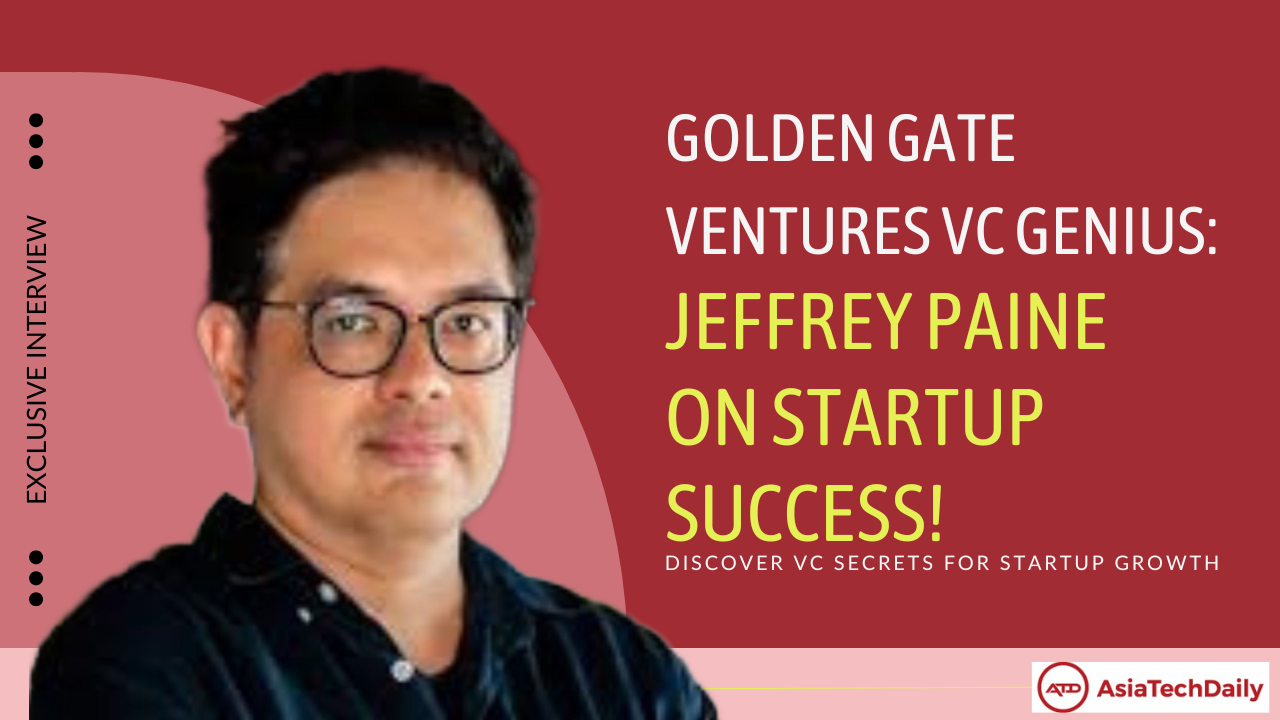AsiaTechDaily – Asia's Leading Tech and Startup Media Platform

Founders’ character, right valuation are attractive to investors – Bernard Moon, Co-Founder & Partner, SparkLabs Group
Startup founders looking to attract investors need to show proof of an outstanding team and must be realistic with their valuation numbers, said Bernard Moon, Co-founder & Partner at SparkLabs Group, a South Korean accelerator and fund network.
“Awesome, cutting-edge technology never trumps a weak found team or a team filled with ego and issues,” Moon told AsiaTechDaily in a recent interaction.
Moon said SparkLabs conducts as much as due diligence as possible, especially on the founders’ character, even if the deal is “too hot”.
He also urged founders to not be too aggressive on their valuation, saying getting fixated on certain numbers could cloud the startup founder’s judgment.
“I know a few situations where the founder was too focused on getting a certain valuation and a year later had to settle for a third of what he/she wanted,” he added.
In an interview with AsiaTechDaily, Moon talked about SparkLabs’ investment model, KPIs, the mistakes that founders make when raising money, and a lot more. Edited excerpts below:
What background and domain expertise do you have? And when did you first think about starting a fund?
I’ve primarily been an entrepreneur for the majority of my career. The two more recent startups I co-founded were in enterprise software. My first two startups were in the video-on-demand space back in 1999 and then interactive voice portal, and both of these were co-founded with my SparkLabs co-founder, Jimmy Kim.
I had short stints in finance working at a boutique investment bank in Hong Kong and later on for a family office. I really didn’t think about a fund prior to my co-founder, HanJoo Lee, bringing up the idea of launching a “YC of Korea”back in 2012.
What types of companies/sectors do you look to invest in? and What’s your mental model for investing?
As a firm, SparkLabs invests across most industries besides pharma. I’m not unique in that my past experiences have molded my thinking and approach to investing along with what I have learned from my colleagues and experiences since launching SparkLabs ten years ago.
As an entrepreneur, a couple of my startups were too early in the market, so this is something I think about. It’s good to be ahead and early in the market, but there is also too early when you are educating the market and potential customers for years. I research and consider whether their product is market ready. Of course, this can be difficult if they are trying to create a whole new category, but you still go through this exercise.
Since we primarily invest in seed and Series A, depending on the fund, I really consider the team. The founder dynamics, their character, how trustworthy they are, do they have any big gaps for their functional needs, and other factors.
I also look into why consumers would use their product or why would a company buy it. I ask friends or people I know in their space their thoughts, and if I happen to be a potential user, I ask basic questions such as “would I use this everyday?”
What is your typical investment range and how many startups do you invest in per year in general? Additionally, can overseas-headquartered startups get funding from you?
This just depends on the fund. On the accelerator side, it’s a standard $100,000. From a seed fund, it would range between $300,000 to $600,000, and a Series A fund from $1 million to $10 million depending on the country. In 2023, I would ballpark and say we will be investing in about 60-80 startups across all of our funds.
We have invested in over 400 startups across 6 continents, so geography isn’t usually a factor.
What would be the KPI that you usually check about the startups’ growth? It may be diverse in each industry like LTV, CAC, MoM, etc. but it will be helpful to understand more about your additional investment factors.
This is difficult to answer since we have a healthy culture of unanimous voting at SparkLabs across all of our investment committees, and partners have their own set of criteria. Everyone loves certain metrics and target numbers, but we come together and discuss this and surprisingly come to a comfortable investment decision.
Can you share any investing mistakes that you made if there are any and the lessons we can learn from it?
Luckily, we learned some big mistakes during the early years of SparkLabs. As newbie venture capitalists, there were a couple of times we became too enamored with the technology versus the founders. Awesome, cutting-edge technology never trumps a weak founding team or a team filled with ego and issues. Since then, we rarely give overly excited about shiny, new tech.
Another lesson we learned two years into our founding was to do as much due diligence as possible, especially on the founders’ character. Even if it’s a “hot” deal in Silicon Valley that is closing in a week.
Luckily out of the over 400 startups we have invested in so far, only one founder turned out to be a serial liar and fraud. This was just about 2 years in, so I believe that situation helped mold our approach to trust but always verify and double check on statements made.
Right after being an investor like in the early days, there must be some tough times in building up the first fund along with building up a second fund or giving back the good returns to those LPs. If there is any similar tough time like this, please let us know more about it and how you (or your team) overcome the difficult times.
Just overall fundraising is a pain. If you join an established firm, the platform and mechanisms are already in place. You have long-standing relationships with LPs. As a completely new fund, without any relationships or seeding from established VC firms, makes things really difficult. We didn’t realize it when we started, but we all fundraise more than we did when we were doing our own startups. Persistence is key.
Additionally, do you have any other advice for anyone looking to start a fund?
Definitely best to partner. I believe the short-lived trend of “solo capitalists” was unique to those individuals with stellar track records as angels or who were able to find a unique anchor to their fund. More “regular” first-time VC funds need at least two partners with at least one having a prior track record to tout.
What mistakes do you see founders make when raising money?
Some founders simply don’t do enough research on their target market, but this is just a handful. Others are too aggressive on the valuation and become too fixated on a certain number. This is where ego and ambition become too encompassing in their minds, so it clouds their judgment.
I know a few situations where the founder was too focused on getting a certain valuation and a year later had to settle for a third of what he/she wanted. In three situations that I know of, had they just compromised to 30%-40% less, the investor would have closed with them.
What’s your advice to entrepreneurs who have a chance to meet investors like you? What are the top 3 questions that you always ask the founders?
If possible, I would research or find out what that specific investor likes in terms of industry, products, any founders’ preferences (i.e. engineer vs non-engineer), and other information that will help you gain their attention and trust.
I prefer founders that don’t overhype or talk in that style. Stretching the truth or exaggeration for effect is negative in my eyes, but some of my partners don’t mind this.
What’s your general thought about the term “Global” and What are the important factors (criteria) for local startups to consider for international expansion?
We have always been “global” since day one and that has been our positioning as a firm, and what has set us apart from other early-stage investors, especially in Asia.
Ideally, early startups should have a product that is complete and already gaining rapid market share in their domestic turf. They should always have enough capital. I think it’s a bad idea if a startup raised $1 million, still not established in its home market, and decides to allocate a quarter or more of its capital to expand overseas. They are just increasing their chances of failure by misallocating resources.
What are the top- three life lessons that you want your (future) sons and daughters to know?
My kids are still young, 13 and under, so I haven’t had too many ‘life lesson’ conversations. But I do emphasize certain themes to them:
– Never fear failure and how they will never be able to test their limits until they fail.
– Be mindful and respectful of others. It’s easy to be friends and loving to friends and family, but the real test of character is treating those that you might not like or don’t like well.
– Do not think in terms of ‘best” because there is always better and such thinking leads to complacency and laziness.





